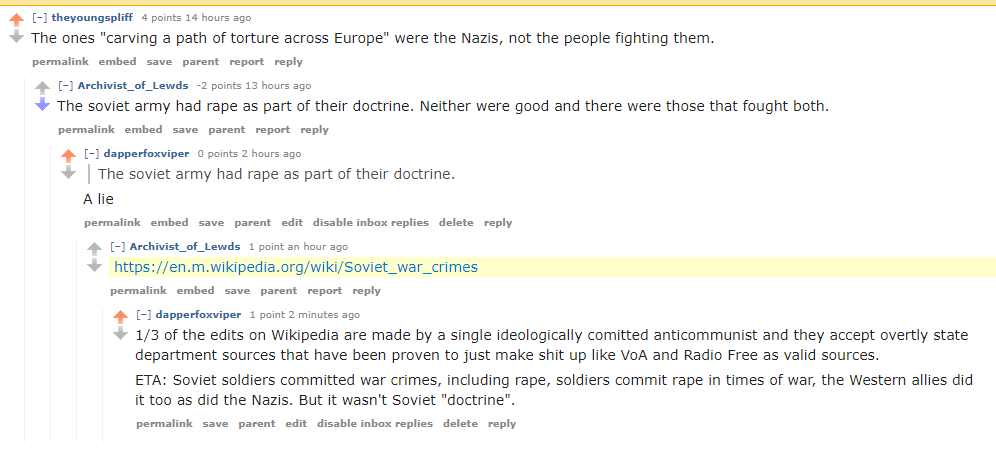the_dunk_tank
It's the dunk tank.
This is where you come to post big-brained hot takes by chuds, libs, or even fellow leftists, and tear them to itty-bitty pieces with precision dunkstrikes.
Rule 1: All posts must include links to the subject matter, and no identifying information should be redacted.
Rule 2: If your source is a reactionary website, please use archive.is instead of linking directly.
Rule 3: No sectarianism.
Rule 4: TERF/SWERFs Not Welcome
Rule 5: No ableism of any kind (that includes stuff like libt*rd)
Rule 6: Do not post fellow hexbears.
Rule 7: Do not individually target other instances' admins or moderators.
Rule 8: The subject of a post cannot be low hanging fruit, that is comments/posts made by a private person that have low amount of upvotes/likes/views. Comments/Posts made on other instances that are accessible from hexbear are an exception to this. Posts that do not meet this requirement can be posted to !shitreactionariessay@lemmygrad.ml
Rule 9: if you post ironic rage bait im going to make a personal visit to your house to make sure you never make this mistake again
view the rest of the comments

absolute or per capita? there's no honest comparative assessments to my knowledge, and lingering perceptions of soviet violence on civilians is permanently tainted by late-war nazi propaganda.
but talking absolutely, if the american GI and soviet soldier had an identical propensity for abuse, more would've been done on the eastern front, with so many more soviet soldiers deployed on a wider front occupying more territory. and i'm not sure we should think the occurrence of war crimes was identical, the motives of reprisal & revenge didn't exist as strongly for people from new england than soldiers that might've been from regions that suffered massacres and sexual violence for years under axis occupation. it's ugly to think about but i really wouldn't be surprised if soviet soldiers were crime-ing at a bit higher rate for that reason. i read an account that directly tied an incidence of violence (that was punished with execution) with a leave to their liberated home village & hearing about the atrocities that occurred there.